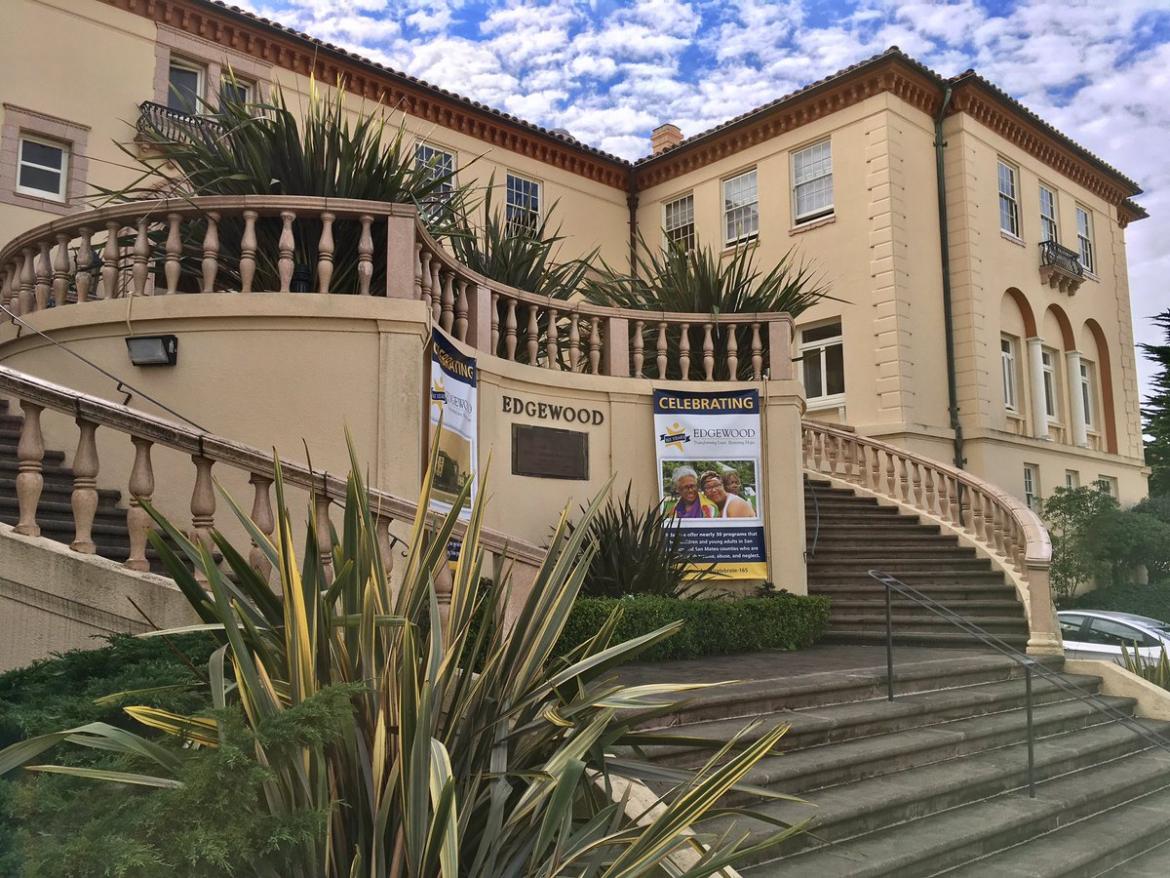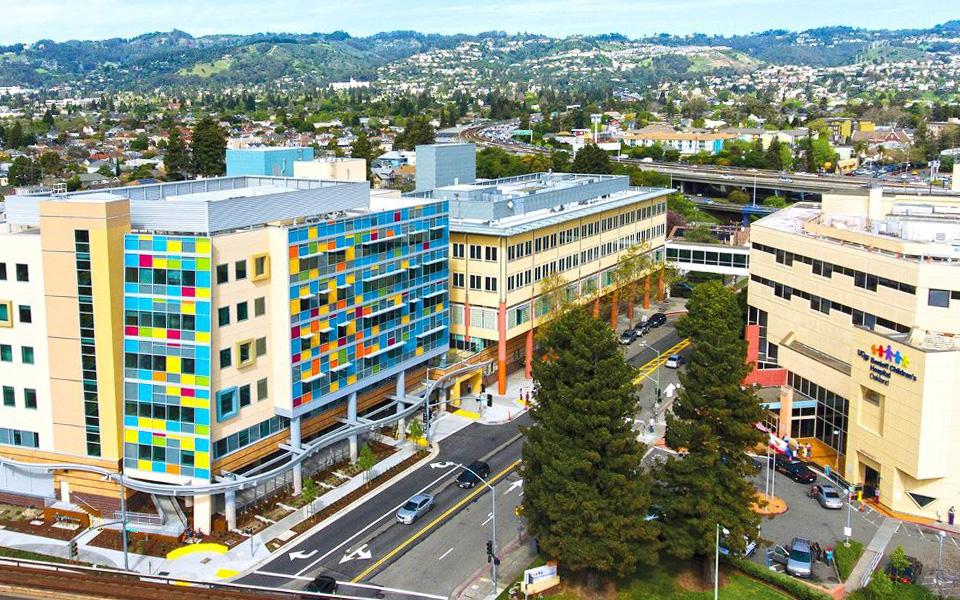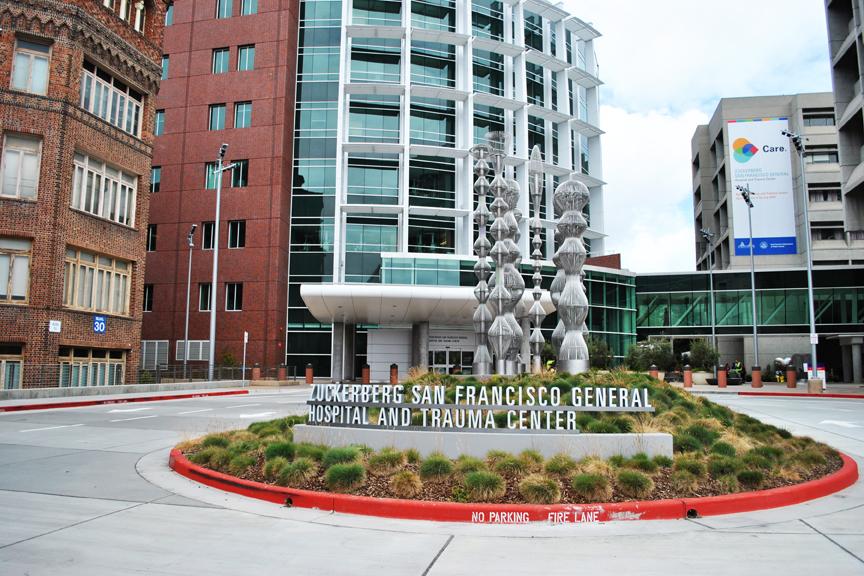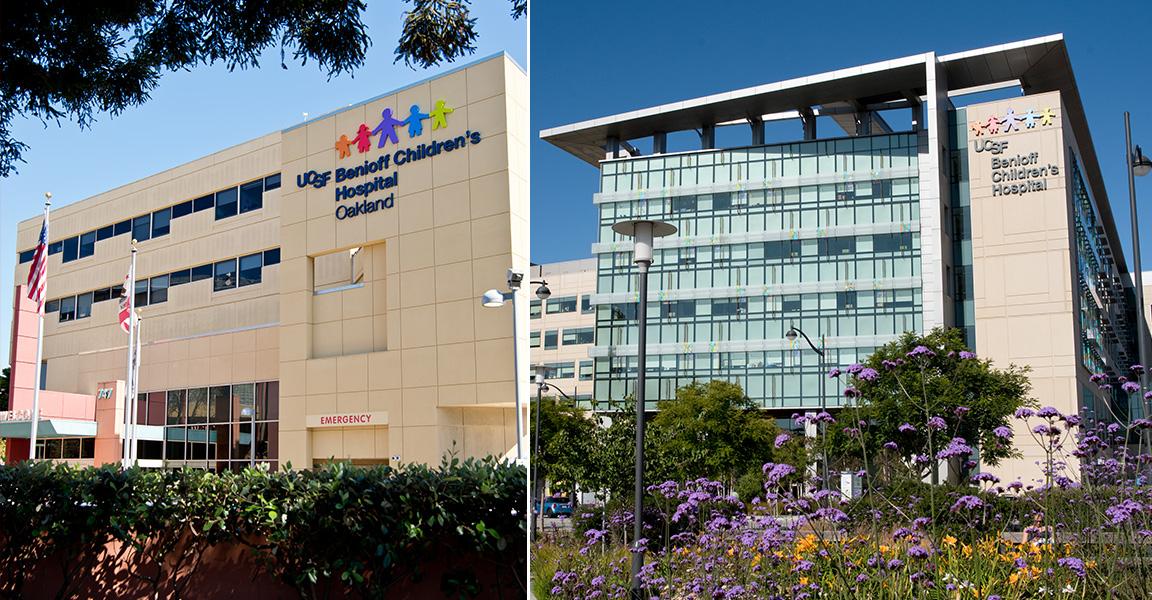Our multisite program takes full advantage of the diversity of San Francisco's community, and combines this rich patient population with the extraordinary clinical, educational and research resources of UCSF. The result is a unique and exceptional training program that prepares our graduates to be outstanding clinicians and leaders.
Intensive Services
Edgewood Center for Children and Families

Edgewood Center is the San Francisco Bay Area's largest residential treatment center, serving over 9,000 youth each year through its crisis stabilization, partial hospitalization, and residential treatment unit. First-year fellows have the opportunity to be an integral member of an interprofessional team that also includes therapists, behaviorists, teachers, and medical providers, together with youth and families. This training experience offers the opportunity to work with more severely disturbed children longitudinally over time as the multiple biological, psychosocial, and systemic factors contributing to their presentation ameliorate.
McAuley Adolescent Inpatient Unit at St. Mary's Medical Center

First-year fellows have the opportunity at the McAuley Adolescent Inpatient Unit to work with an interprofessional team of child and adolescent psychiatrists, nurses, and therapists to provide acute assessment, stabilization, and treatment for adolescents struggling with acute, severe presentations of psychiatric illness requiring inpatient hospitalization.
UCSF Benioff Children's Hospital Oakland

At UCSF Benioff Children's Hospital Oakland, first-year CAP fellows will work with youth who are generally struggling with multiple psychosocial stressors – often including early childhood trauma and psychosocial adversity – in a general outpatient psychiatry setting. Here they learn how to evaluate patients and develop and implement treatment plans in collaboration with care team members including therapists, case managers, welfare workers, and schools. Treatment includes consultation to schools and collaboration with primary care providers.
Fellows will also rotate through consultation to primary care, a rotation that offers co-located psychiatric consultation to primary care.
Zuckerberg San Francisco General Hospital and Trauma Center

With its strong history of social justice and community engagement, Zuckerberg San Francisco General Hospital and Trauma Center offers first-year CAP fellows the experience of working with youth who are generally struggling with multiple psychosocial stressors – including poverty and trauma – as part of a multidisciplinary assessment center focusing on neurodevelopmental disorders.
Consultation-Liaison
UCSF Benioff Children's Hospitals

The psychiatry consultation-liaison service at UCSF Benioff Children’s Hospitals in San Francisco and Oakland offers first-year fellows the opportunity to assess and treat children with complex medical illness and comorbid psychiatric concerns, including delirium, medical trauma, somatoform disorders, and many others.
Outpatient
UCSF Langley Porter Psychiatric Hospital

At Langley Porter, CAP fellows rotate through a number of specialty clinics, including the UCSF STAR (Service, Training, Advocacy & Research) Center for ASD and NDDs, where fellows learn the fundamentals of autism assessment and have the opportunity to be trained in administration of the Autism Diagnostic Observation Schedule. The UCSF Eating Disorders Program offers fellows the opportunity to participate in the interdisciplinary assessment and treatment of eating disorders using a variety of modalities, including family-based therapy. In the OCD and Tics Clinic, fellows assess and treat patients using exposure and response prevention, comprehensive behavioral intervention for tics, and psychopharmacology. In the mood and anxiety disorders clinic, fellows assess and treat a wide range of mood and anxiety disorders, with a particular emphasis on complex presentations of mood disorders. In the UCSF Path Program (formerly the Early Psychosis Program), fellows assess and treat patients with evolving psychotic disorders and suspected psychotic symptoms. The Hyperactivity, Attention, and Learning Problems (HALP) Clinic affords fellows the opportunity to work with psychologists who perform comprehensive evaluation and testing of complex ADHD and learning disorders, and to be the treating psychiatrist team member, as well as the opportunity to participate in child- and parent-focused groups. In the General Evaluation and Short Term Treatment Clinic, second-year fellows have the opportunity to function in a junior attending role, teaching adult psychiatry residents about psychiatric assessment and treatment of children and adolescents. During school consultation, second-year fellows serve as the psychiatric consultant to several San Francisco public schools.
Community clinics
At community clinic sites, including Chinatown North Beach Mental Health Services, OMI Family Center, Mission Mental Health Services, and Family Mosaic Project, second-year CAP fellows continue to hone their diagnostic and assessment skills, and provide ongoing care in a culturally attuned way in collaboration with care team members.
Fellows also have their own continuity clinics, where they see patients longitudinally for up to two years. There they provide psychopharmacological management, as well as individual and group psychotherapy modalities including CBT, DBT, family, interpersonal, and psychodynamic therapy, with the possibility of selecting a supervisor who specializes in a particular area of interest (e.g. DBT, CBT, or psychodynamic therapy).





